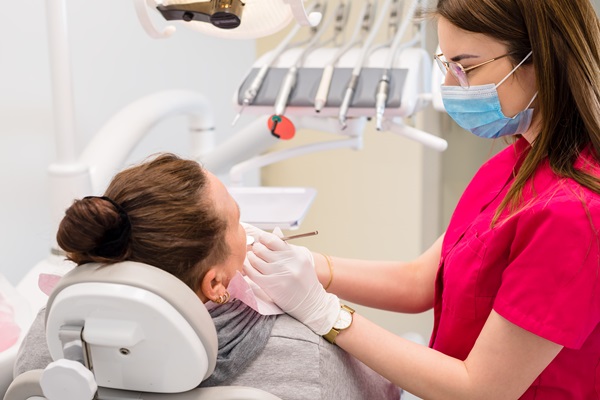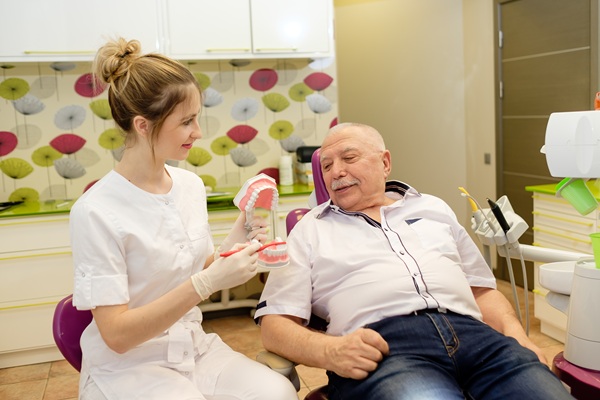3 Things To Ask Your Dentist About Teeth Whitening

Teeth whitening is one of the most common cosmetic dentistry procedures, giving people a fast and affordable way to improve their smile. Almost everyone who chooses teeth whitening will notice moderate to significant improvement in the whiteness and brightness of their smile. Teeth whitening involves removing stains and discolorations from the teeth.
Whitening treatments are customizable to fit the patient’s budget, time frame, and preferences. Read on to learn the important questions to ask during your consultation.
Preparing for teeth whitening
Dental issues can affect the outcome of the whitening procedure. For instance, patients must undergo treatment for cavities before whitening their teeth because the whitening solution can penetrate the decayed areas into the inside of the tooth. In addition, tooth decay or receding gums may also make the teeth sensitive. Whitening is also ineffective on ceramic or porcelain crowns and veneers.
It is possible to complete teeth whitening in the office under the dentist’s supervision or with a kit at home. For doctor-supervised teeth whitening, the dentist will take a picture of the patient’s teeth so they can observe the progress of the treatment. The dentist will examine the teeth and ask questions about the cause of the discoloration.
Afterward, a dental hygienist or dentist will clean the teeth thoroughly to eliminate bacteria film, food debris, or other substances that may have accumulated on the teeth and caused the staining. After completing this process, the whitening procedure starts.
Questions to ask at your consultation
In most cases, patients like to ensure their teeth are in good condition and they are viable candidates for teeth whitening treatment. Patients in good oral health and free of serious dental problems are eligible for teeth whitening. Normally, the dentist will check the patient’s teeth and health history before recommending teeth whitening. In addition, patients who have gum disease, tooth sensitivity, tooth decay, dental restorations, or are pregnant or lactating may need to hold off on teeth whitening.
Here are a few questions to ask at your consultation appointment:
How safe are the bleaching kits used by dentists?
Many bleaching products used by dentists come with the American Dental Association's Seal of Acceptance. This approval includes products used at the clinic for professional teeth whitening, which can contain as much as 35% hydrogen peroxide, and at-home kits provided by dentists with about 10%. Over-the-counter bleaching products contain less than 10% hydrogen peroxide, and there are currently no brands that the ADA approves.
How often can or should I whiten my teeth?
Whitening is not a permanent fix. For example, if you smoke or consume teeth-staining foods or drinks, your teeth may get stained. However, if you take proper care of your teeth, another whitening procedure may not be necessary for another six to 12 months. You can ask the dentist for an ideal whitening schedule.
How white can my teeth get from treatment?
The result of teeth whitening varies depending on the patient. Many get desired results in one session, while others may need multiple appointments. Before proceeding with treatment, ask the dentist about the possible realistic projections of results and how long it will take to get the desired shade.
Schedule a whitening consult today
Whitening rarely causes serious side effects, although some patients may experience teeth sensitivity or gum irritation for a short while. If you think you might benefit from a teeth whitening procedure, call our office at (713) 481-4626 to schedule a consultation with the dentist.
To learn more about our services, visit https://www.drbrucematson.com or call our Houston office at (713) 481-4626 to schedule an appointment.
Check out what others are saying about our dental services on Yelp: Teeth Whitening in Houston, TX.
Recent Posts
Dental crowns are a reliable and durable solution for restoring the appearance and function of damaged teeth. While dental crowns are designed to last years, proper care and maintenance are essential for extending their lifespan. Following practical steps and working closely with your dentist can protect your investment and enjoy a confident smile for years.Maintaining…
Gum disease is very serious, and without treatment, it can be detrimental to one's overall health. The severity of the infection determines the treatment options. When experiencing any signs of gum disease, it can be helpful to review the following information to prepare for what to expect from the treatment process.Outlined below are four different gum…
An oral cancer screening does not require any special preparation. However, preparation can help patients who are nervous about the visit or simply would like to know more about what to expect and how they can get the most out of the visit. This review offers insights into how you can prepare for an oral…
Restorative dentistry treatments can change your smile and oral health dramatically. This dental subspecialty is particular because it allows patients to once again enjoy normal oral functions. The services deal with dental problems and help patients get back self-esteem and quality of life.The primary focus of a restorative dentist is the diagnosis, prevention, and treatment…


